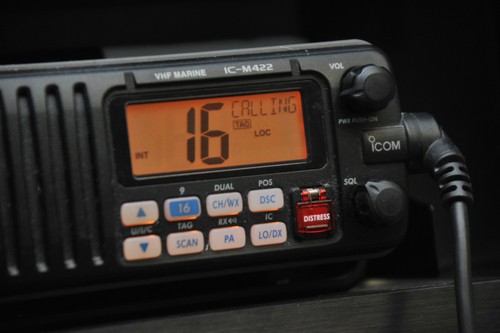The Harsh Reality of US Coast Guard Migrant Policy
by John Konrad (gCaptain) When merchant and cruise ships rescue migrants at sea, they offer more than just a lifeline from the perilous waters; they provide critical sustenance and care....


Emergencies only
We report about hoax distress calls all too often and hopefully this case sends the message that such calls, in any capacity, are no joke.
The U.S. Coast Guard and U.S. Attorney Office said this week that Shane Coxon, a 24 year old ex-Coast Guardsman, was sentenced Friday in U.S. District Court for the Western District of Washington for knowingly making a false distress call to the Coast Guard in July 2010.
Coxon was sentenced to time-served of approximately three and a half months imprisonment to be followed by two years of supervised release and was also ordered to pay the U.S. Coast Guard more than $4,500 in restitution.
Prior to the incident, Coxon was a petty officer second class in the Coast Guard, stationed at Sector Northern New England.
According to a USCG release, Coxon called the Sector Northern New England Command Center on July 18, 2010 and, using a false name, reported a distress flare sighting off the coast of Old Orchard Beach, Maine. The Coast Guard, unaware that the distress call was a hoax or that it had been reported by Coxon, issued an Urgent Marine Information Broadcast and launched crews from South Portland, Maine. The search lasted nearly an hour and a half and cost the Coast Guard more than $4,500, while putting rescue crews at risk.
“In the Northeast alone, our crews respond to more than 2,500 search and rescue cases per year and save more than 350 lives,” said Lt. Joe Klinker, 1st Coast Guard District Public Affairs Officer. “We’ve been performing these missions for 200 years, our crews are constantly busy, and their mission is dangerous. That’s why we have the tools in place to prosecute hoax offenders.”
Coast Guard Investigative Services partners with the Department of Justice to aggressively prosecute persons initiating or contributing to false distress calls. Not only do these hoaxes unnecessarily put rescue crews at risk, they also tie up responders and assets in the case of real emergencies.
The Coast Guard receives hundreds of hoax calls every year throughout the nation. If caught, offenders can be sentenced to up to 6 years in prison, a $250,000 criminal fine, a $5,000 civil fine, and reimbursement to the U.S. Coast Guard for the cost of performing the search.
Join the gCaptain Club for curated content, insider opinions, and vibrant community discussions.


Join the 105,925 members that receive our newsletter.
Have a news tip? Let us know.
Access exclusive insights, engage in vibrant discussions, and gain perspectives from our CEO.
Sign Up




Maritime and offshore news trusted by our 105,925 members delivered daily straight to your inbox.



Essential news coupled with the finest maritime content sourced from across the globe.
Sign Up